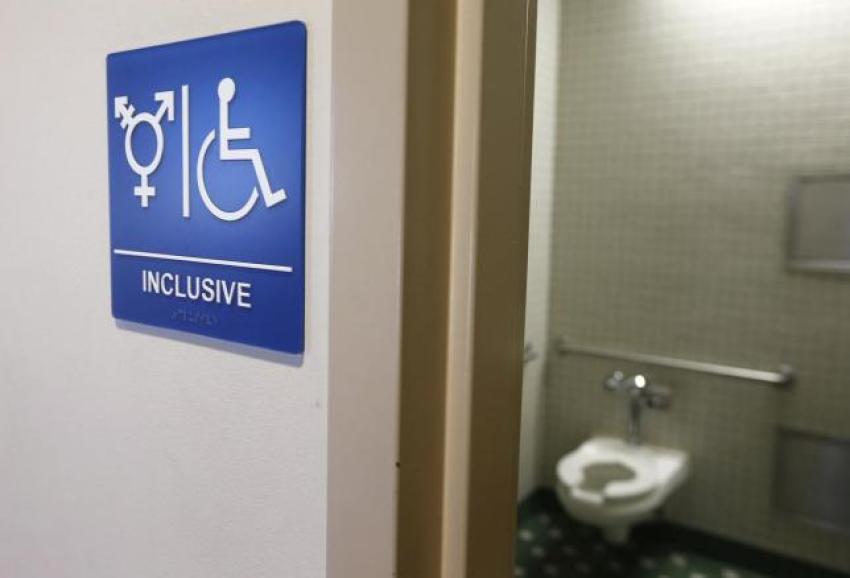Minnesota Transgender 'Toolkit': 'Segregate' Students Who Object to Transgender Kids in Bathrooms

An advisory council within the Minnesota Department of Education has voted in favor of implementing a new transgender "toolkit" that instructs public and charter schools to "segregate" students who object to sharing bathrooms and locker rooms with transgender students of the opposite biological sex.
The Minnesota Department of Education's School Safety Technical Assistance Council voted last Wednesday to give schools formal guidance through the creation of a document called "A Toolkit for Ensuring Safe and Supportive Schools for Transgender and Gender-Nonconforming Students."
The purpose of the so-called toolkit is to provide formal guidance to schools and administrators on how to create inclusive environments for children who identify as members of the opposite sex.
According to a 10-page draft document, the toolkit spans topics such as school policies, name and pronoun use, bathrooms and shower use, hotel accommodations and even prom and homecoming queens and kings.
"Schools should work with transgender and gender nonconforming students to ensure that they are able to access needed facilities in a manner that is safe, consistent with their gender identity and does not stigmatize them," the draft copy of the toolkit reads. "Privacy objections raised by a student in interacting with a transgender or gender nonconforming student may be addressed by segregating the student raising the objection provided that the action of the school officials does not result in stigmatizing the transgender and gender nonconforming student."
The toolkit states that while some transgender and gender nonconforming students might choose to use a private space to change before and after gym class or practice, it calls on coaches and other school officials to figure out how to accommodate transgender students who want to use a locker room or shower designated for the opposite sex.
"Coaches should consider how they can utilize privacy curtains, restrooms and separate changing schedules to provide for privacy for all students," the toolkit states.
The toolkit further adds that "schools should not assume a student's name, gender identity or pronoun."
"School officials should ask the student and use the requested name and pronouns," the guideline continues. "Students need not provide schools with legal documents to correct their first name or gender within their student records. When students are referred to by the wrong pronoun by peers or school staff, students may feel intimidated, threatened, harassed or bullied."
The toolkit also urges teachers to stop addressing their students as "boys and girls." Instead, the toolkit advises that teachers should use the words "students" and "scholars."
The toolkit warns that teachers who use a student's incorrect pronoun or name might be in violation of the Family Educational Rights and Privacy Act, a law that protects the privacy of student education records.
The toolkit was approved by the council during an open meeting last Wednesday, in which proponents and opponents of the document voiced their thoughts on the matter. According to CBS Minnesota, over 200 people attended the council meeting last week.
"This is a collection of resources and best practices," Charlene Briner, deputy commissioner at Minnesota's Department of Education, said, according to KSTP. "A lot of these decisions are made at the local level by administrators."
Although the toolkit has been applauded by LGBT activists and supporters, some of the participants in last Wednesday's meeting were parents who voiced outrage over the toolkit.
"Sadly, this toolkit undermines my authority as a parent," Joy Orbis, a mother of four, was quoted by the Star Tribune as saying.
Stephani Liesmaki, the communications director for the Christian conservative Minnesota Family Council, told NBC News that the toolkit has "broad-sweeping recommendations" that threaten parental rights.
"Predominantly, the toolkit considers only the perspective of gender-nonconforming students, and dismisses and ignores [the] concerns of other students and parents, and includes veiled threats," Liesmaki explained.
Republican State Rep. Tim Miller issued similar thoughts during last Wednesday's meeting.
"I do not see sensitivities to a 13-year-old Christian girl or a kindergarten boy who cannot possibly have a sexual orientation," Miller said, according to the Star Tribune.



























